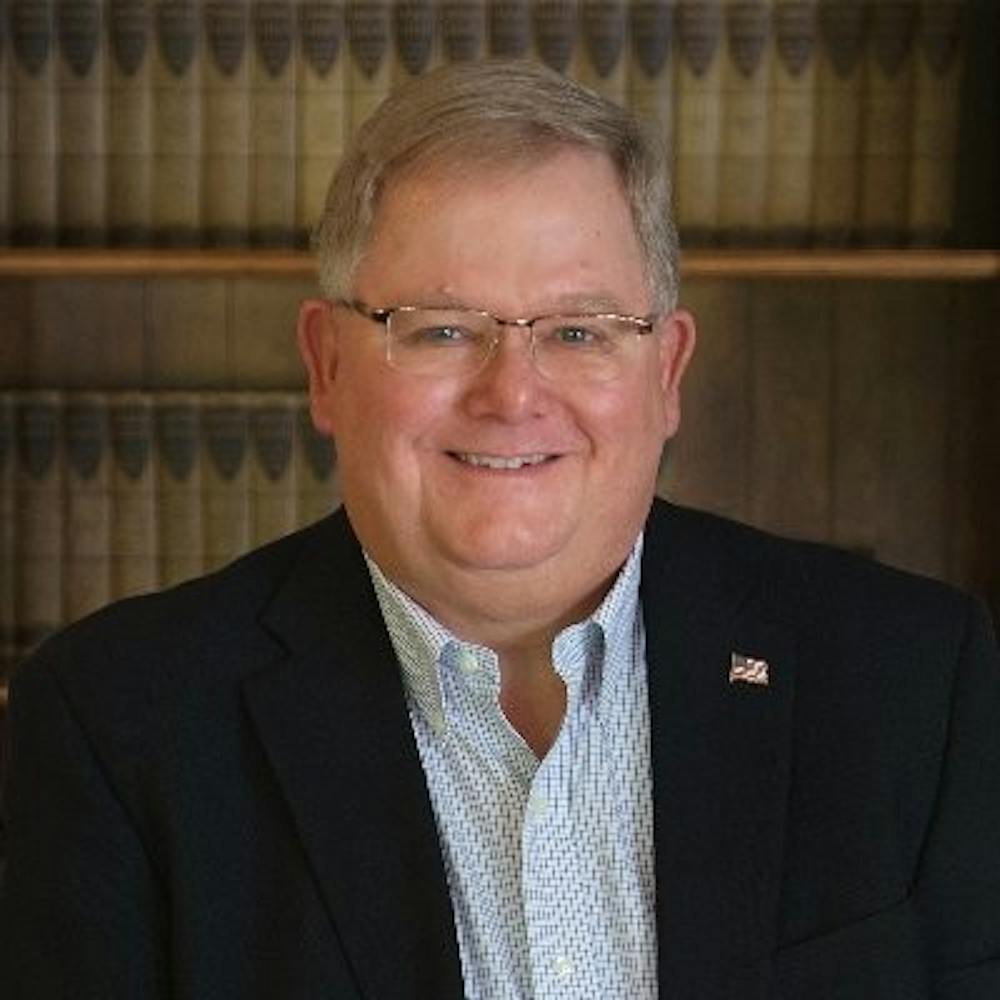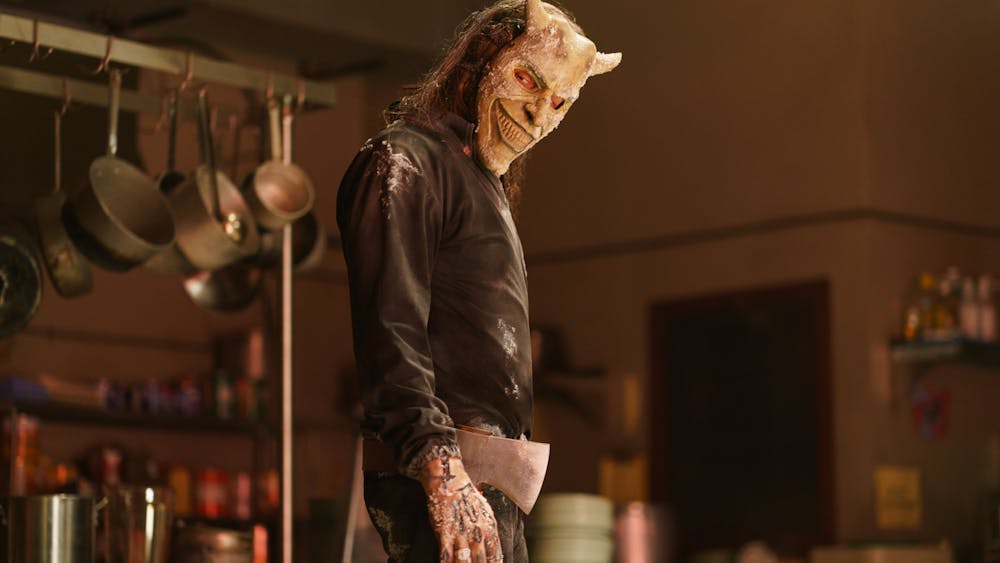Q&A: Alumnus T.R. Shaw Jr. talks about his time at CMU, his new book

Alumnus T.R. Shaw Jr. served as a lieutenant commander in the U.S. Navy, worked as a funeral director and is now an author.
A U.S. Navy lieutenant commander, funeral director and escort for a Washington Post Editor are all roles T.R. Shaw Jr. have had throughout his life.
The Central Michigan University graduate has a variety of experiences to share in his new autobiography, “Defy the Immediate: A Journey of Failure, Perseverance and Success,” which was released on Nov. 19. In the book, Shaw goes into his time at CMU and his life post-graduation.
He attended CMU from 1978-1982, where was a part of Central Michigan Life and Sigma Chi. During his freshman year, he had the opportunity to drive Ben Bradlee, then editor of The Washington Post, around for a day and even introduced him at a speech.
After graduating, he enlisted in the Marines because he wanted to do public affairs with the Navy. During his time in the Navy, he traveled around Europe and the Mediterranean to countries like Lebanon, Norway, Greece and Italy. After leaving active duty in 1987, he became a funeral and attended Wayne State University to get his funeral director’s license.
CM Life spoke with Shaw in an interview about his life and book.
CM Life: What does the title of your book mean?
Shaw: It came from Dick Enberg, who did the 1980 commencement speech at (CMU). Dr. Anspach used to do a lot of lectures, and Enberg talked about Anspach quite a bit. Anspach’s catchphrase was ‘defy the immediate’ and so I (thought it would make) a cool title.
What does that phrase mean to you?
It’s an analogy for perseverance, being defiant of the moment and overcoming difficulties and challenges. Things always seem to get better once you get through something.
Why did you choose to attend CMU?
I was a journalist in high school, and I got involved with publications and my yearbook. They used to have what was called the Michigan Interscholastic Press Association. They would bring up high school journalists and we talked about journalism and the profession. It was also a recruiting gig for (CMU) and we got to work on a newspaper. It was really fun. I looked into it more and saw that CM Life had a good newspaper and had a great journalism program.
Describe what the CM Life newsroom was like at the time.
We had a newsroom in the lower level of Anspach (Hall) and upperclassmen were the editors. My first beat was the police beat, which I hated because everyday I had to go over to DPS and look over their log. They never really wanted to talk to me much. Second semester, I wanted something different, so they gave me the Greek beat which was interesting because there was a lot going on there. During that time, there was a house fire at the Sigma Pi house. That was the big news story: here was the Greek beat reporter and I got to cover a house fire.
Tell us about the time you picking up Ben Bradlee as a freshman.
I was doing a story over at University Events at the time and I was interviewing the events director. He said, ‘Hey, Ben Bradlee is coming to campus. You’re a journalist, would you be interested in going to pick him up?’ I said sure, I’ll go do that. I did try do research on him. It was right after Watergate and a few years after Nixon’s resignation. The movie, “All the President’s Men” was out so he was at the top of the journalism world.
I knew he was close to President Kennedy when he was a younger journalist, so I was trying to think of things to talk to him about while we were driving. I picked him up, brought him to Mount Pleasant, and then as it progressed, they said, ‘Do you want to be his escort while he’s here?’ So, I ended up escorting him to all his engagements. Then they said, ‘Since you’ve done all this do you want to introduce him at the speech?’ So, as a freshman, I stood up there in Warriner Hall in front of 2,000 people and I introduced him, talked for a little bit and sat there on stage while he did his speech.
What’s it like being an alumnus of Sigma Chi and visiting the fraternity nowadays?
It’s always great to come back because of the connection… It’s a connection beyond college. It’s a bigger world. The best part about that was meeting people through the alumni groups and you got to meet a whole lot of people. Coming back though, you got a connection with people here now, which is good. You try to inspire them.
Why did you go into the Navy after graduation? Why did you try to be an officer?
Back in high school, I thought about it but I didn’t enlist. But I had seen a few things and I’d heard about public affairs. I kind veered away from traditional journalism and I wanted to get more into public relations. At that time, I just didn’t have enough experience to work in a PR firm. At that time, the military was really building up and Ronald Reagan was president. He proposed a 600-ship navy, so the Navy was booming and I thought ‘maybe this is time to do this.’
I looked into public affairs but my recruiter didn’t know a whole lot about that field kind of steered me into surface warfare and it made sense. You had to learn about it before you can do it. That ended up being the hard part.
What’s your most memorable story from your time in the navy?
When I first got to my ship – I was on the Eisenhower – and we were off the cost of Lebanon. I had been at sea for about 30 days when I got there, and they finally broke away. They went for a port call in Naples in when the Marines were bombed in Lebanon and around 220 Marines were killed. We turned around next day and came back and we were ready to go to war. We had planes loaded and ready to attack, but we never did. It was like the first round of the war on terror.
What’s the biggest misconceptions about working in the funeral industry?
It’s a hard profession. It’s 24/7, so you can’t escape it. That’s one of the biggest problems I have; you’re on call all the time… There are a few bad eggs out there that makes it bad for everybody. Ninety-nine percent of all (funeral directors) are very compassionate, understanding and work hard. We really try to take care of people and do the right thing.
It’s been said that funeral directors are the first people to help others get back to normalcy. We always show up at a bad time in peoples’ lives. It’s a challenge for us.






